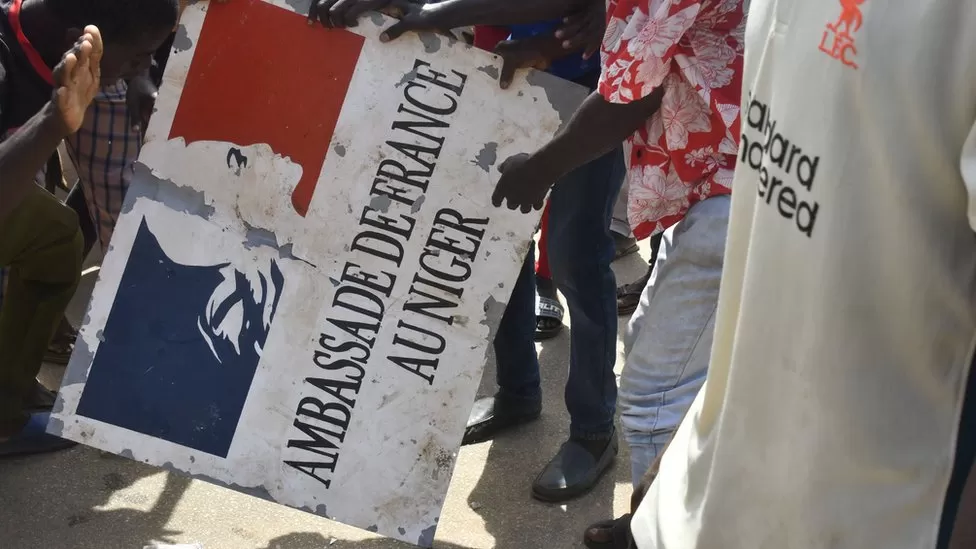France defies ultimatum for ambassador to leave Niamey

A defiant speech by French President Emmanuel Macron confirmed the ambassador has remained in Niger despite being given a 48-hour deadline to leave.
Due to rapidly deteriorating bilateral relations, ambassador Sylvain Itte was ordered to leave.
After the coup leaders’ deadline passed, the president said he “applauded” Mr Itte for staying put.
Niger’s elected president was overthrown last month by the junta.
In a major foreign policy speech to ambassadors gathered in Paris as well as others listening remotely, Mr Macron said: “France and its diplomats have faced particularly challenging situations in some countries in recent months, from Sudan, where France has been exemplary, to Niger at this very moment.
It is commendable that your colleague and his colleagues are listening from their posts.”
On 26 July, Niger’s President Mohamed Bazoum was ousted in a coup that was condemned by France and many of Niger’s neighbors, including Ecowas.
Niger’s junta announced on Friday that the French ambassador had 48 hours to depart after refusing to meet its new leaders after the coup.
Near the French military base in Niamey, thousands of Nigeriens in support of the coup demonstrated on Sunday.
In footage posted on social media, local Muslim imams appear to be leading prayers outside the base while others held signs demanding the departure of French troops.
Macron defended France’s military presence in Niger, saying the country would cease to exist without its “existing borders” without intervention from Paris.
Mr Macron said Mali and Burkina Faso would also have suffered the same fate without France.
Until last year, France had been fighting Islamic insurgents in Niger, Mali, Burkina Faso, Chad, and Mauritania, all former French colonies.
Around 5,500 French soldiers were stationed in Africa at its peak.
Despite this, anti-French sentiment and protests in the region have intensified recently, with some criticizing France’s intervention as colonialism.
Several observers noted that the troops are unable to overcome the threat of jihadists who continue to carry out deadly attacks on communities.
In response to this insecurity, soldiers in Mali, Burkina Faso, and more recently Niger launched coups, claiming that a change of leadership was needed.
Mali’s military government has asked the Russian mercenary group Wagner to assist in fighting Islamist militants. The mercenaries may be active in other regions as well.
